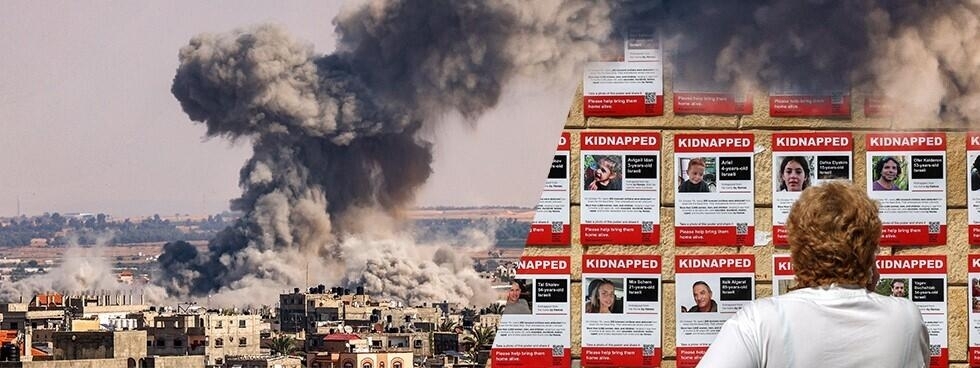More than 3 months after the start of the Gaza war, more and more voices around the world are calling for a ceasefire. While we stand apart from all those who blame the war on both sides, going so far as to deny or justify Hamas’ aggression, we must ask ourselves this question today in the face of the humanitarian catastrophe facing the civilian population in Gaza.
In Israel, the population, still traumatized by the barbaric Hamas attack of October 7 on its territory and the massacres of 1,200 people, mostly civilians, and the daily announcements of fallen soldiers, continued to stand behind its army. If it does not question the purposes of that war—wiping out Hamas, destroying its infrastructures and bringing back home the 136 hostages -., we are not so sure now that all this may happen. We may note that within the Security Cabinet, Benny Gantz reverses the order of priority of these objectives, favoring the release of hostages.
In a recent interview, Gadi Eisenkot’s (former chief of staff, number 2 of the centrist party led by Benny Gantz, and member of the Security Cabinet), who lost his son and his nephew in that war, asserted that “It needs to be said, bravely, that… it’s not possible to return the hostages, alive, in the near term, without a deal”, has strengthened the public campaign which, with the hostages’families, calls for their release. The government faces a contradiction between the rising pressure of opinion to save hostages and that of displaced populations from the south and north demanding, in order to be able to come back to their cities and kibboutzim close to the border, to have guarantees for their security, which implies the ongoing of military operations in Gaza. So far, negotiations are ongoing via several channels, Hamas demanding a total ceasefire and Israel offering a few months truce in exchange for the release of the hostages.
On October 8th, we declared our full and unconditional support for the Israeli people and their army and affirmed their right to defend themselves. We did not change our position, but given the risk of the Israeli army bogging down in Gaza, the consequences on the civilian populations and the threats to see the conflict also extend over the northern border, it may be time to look for a way out of the crisis. We know that there is no military solution to this conflict, and since JCall was founded, we have always said so. Given its composition, the government is unable to define a political objective for this war and propose a scenario to deal with “the next day”. And without a political project, there can be no military plan to end this war. Herzi Halevi, Army Chief of Staff, says it himself when he warns the government that the progress made in more than three months of fighting may be eroded because no strategy has been developed for “the next day”.
The Israeli -Palestinian conflict is again at the center of international preoccupations, because of the risk of a regional war, the humanitarian situation in Gaza, and its consequences on our societies in the West. We must take advantage of this awareness to create a new dynamic around a broad coalition including the United States, the European Union and Sunni Arab countries to resurrect the two-state solution, the only way to ensure that both peoples can live together safely. The Israeli government must assert it has no intention of setting up a Jewish civilian presence in Gaza, nor manage the lives of Gazans after this war, and that this role will return to the Palestinians through a relegitimized Palestinian Authority and rid of Hamas.
The Israeli Civil Society, which since the start of this war, has shown unprecedented mobilization to address the deficiencies of the State and remarkable resilience, is much more mature than its leaders when it comes to imagining the “next day”. 51% of Israelis against 28.O9% would support an agreement reached with American support that would be based on the creation of a demilitarized Palestinian state and normalization of relations with Saudi Arabia, according to a recent poll requested by the Genève initiative.






